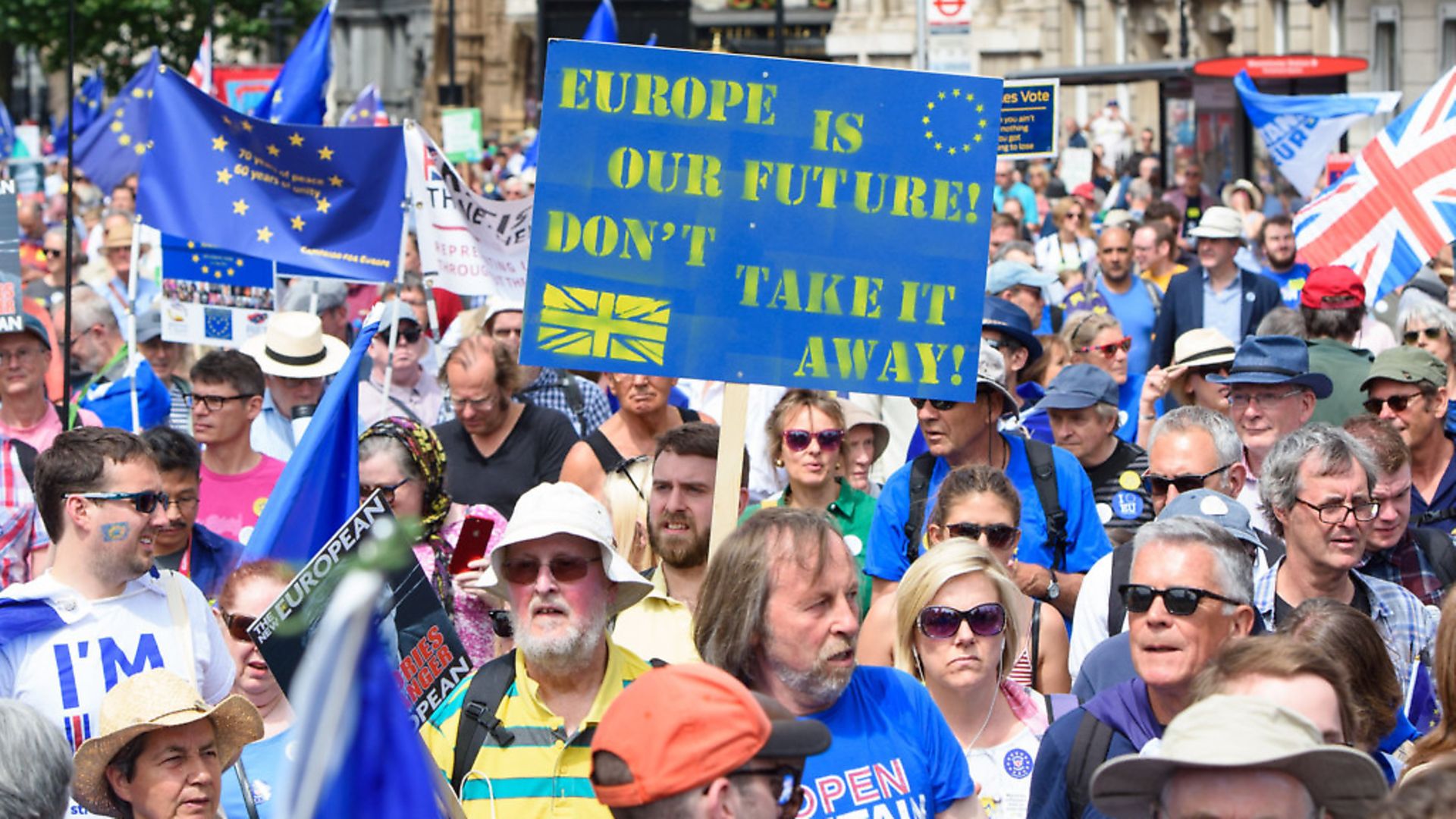
Editor-at-Large ALASTAIR CAMPBELL explains why comparing the public reaction surrounding the Iraq War with Brexit simply won’t work.
Piers Morgan has a point. No, please bear with me, he does. Like his old pal Donald Trump, he makes most of his points on Twitter, responding to my tweets about the People’s Vote march thus: ‘I don’t remember you demanding a ‘people’s vote’ on war with Iraq after 1.7 million marched against it.’
His point is obvious, but as so often in modern debate, there is a strong element of ‘whataboutery’ attached to it. ‘What about Iraq?’ has become shorthand for the idea that we should forget that Tony Blair was a three-times election winning Prime Minister (the third of them after the Iraq War) whose government made Britain a better, fairer, stronger and more prosperous country.
All too many Labour people seem to find it hard to defend, or even mention, his record on investment in schools and hospitals, minimum wage, jobs, Sure Start, gay rights, devolution, Northern Ireland, Kosovo, etc, etc, etc, etc, because they too are ‘whatabouterists’ when it comes to any assessment of the last leader of any party to win a majority.
So I replied to Piers: ‘No, you’re right. But this is very different. Cameron gave the decision to people not parliament. The people said ‘OUT’. The government negotiates on their behalf. Now people should say if this is what they wanted.’
Part of Piers’ argument is that I did not believe that ‘the people’ should have the final say on whether we went to war or not. He is right. I believe that decisions like that are a matter for government, but that the government must do all it can to seek parliamentary approval. Further, I think there are times when government should be able to act without parliamentary approval, but Iraq, in part because it was so controversial, and so divided the country, was not one of them.
It is often said we ‘just didn’t listen’ to the voices of opposition, and to those marching against war.
We did. You would have to be politically tone deaf not to have done so, and Tony Blair was never that.
They marched past the end of his road, and made very clear that they totally opposed what he was doing. He listened. He heard. But he and the government didn’t agree, and their role was not simply to have a view, but make decisions. It is why we elect leaders.
It was an abdication of that responsibility of the leadership role that has landed the country in the total mess of division and uncertainty in which we now find ourselves. Leadership, ultimately, is about the difficult decisions, the tough choices, the hard calls, not the easy ones. David Cameron faced difficult decisions, tough choices, hard calls, in relation to the UK’s relationship with Europe. But ultimately he took the easy way out – offer the referendum to keep his right-wing quiet and clip UKIP’s wings – rather than lead, in word and action, a strategy based around fighting for the long-term interests of the country. So Piers is also right in suggesting I am not a big fan of referendums. As Margaret Thatcher said (Christ, what is happening to me? That’s Maggie and Piers having a point in the same piece) ‘they are a device of dictators and demagogues’. She was actually quoting Labour’s post-war prime minister Clement Attlee, who pointed out that Hitler, Mussolini and Napoleon used them to win popular support for decisions they had already made. Cameron on the other hand used one to avoid having to make tough decisions in the first place.
It was always a bad idea, and two years on from the vote, its badness is growing. In our system of parliamentary democracy, it ought to be the case that MPs, who are representatives not delegates, could take control, and rethink the whole thing if, as indeed the majority of them do, they think Brexit is going badly wrong. But there is such a thing as realpolitik, and that demands, whether we like it or not, that the result of the referendum be respected. MPs alone cannot decide this. The people having chosen a course, only the people can decide to change course.
The government, many in the media, and sadly all too often Labour figures too, like to portray the People’s Vote we are calling for as a re-run of the referendum two years ago.
It is not. It would be a vote on whether the country accepts the deal Theresa May brings back from the negotiations. That would be pragmatic, and far from being anti-democratic, it would be sensibly democratic, to allow a decision as big as this to be tested in this way. Every time I debate this with Leavers, they say we are wasting our time because ‘the result would be just the same, probably with a bigger majority against you’. Maybe. Maybe not. But the question would be different.
The context is certainly different – we know a lot more than we did, many of the things the Leavers promised have not materialised, and things they said wouldn’t happen have.
This is the other reason why this is so different to Iraq.
The binary choice on Iraq – to be part of the invasion or not – did not change. The choice on Brexit has changed. ‘Brexit Means Brexit’, in all its vagueness, is moving to ‘this is what Brexit actually means’. ‘In or out’ has shifted to the question of whether the country wants to proceed on the basis of the deal May secures.
And if it is a bad deal that is presented to parliament, realpolitik kicks in again, but in a different direction. As things stand, MPs think they get kudos from the public for sticking up for ‘the will of the people’. That will evaporate quickly if the mood of the people turns against the Brexit on offer.
When the real crunch time comes, every single MP will surely think longer and harder than they have on the process votes so far, about voting for something they know will make the country poorer. That is a big thing to have to live with. And if the Leavers really are so confident, why are they so scared to test it given, if the public did support the deal, we on our side would have to accept that really was that, game over? Might it be that it is fear of the will of the people, not respect for it, that is driving the Brextremists now.








